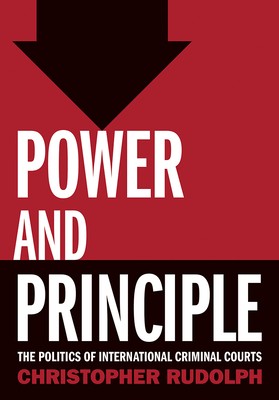
- We will send in 10–14 business days.
- Author: Christopher Rudolph
- Publisher: Cornell University Press
- ISBN-10: 1501705520
- ISBN-13: 9781501705526
- Format: 15.2 x 22.9 x 1.8 cm, hardcover
- Language: English
- SAVE -10% with code: EXTRA
Reviews
Description
On August 21, 2013, chemical weapons were unleashed on the civilian population in Syria, killing another 1,400 people in a civil war that had already claimed the lives of more than 140,000. As is all too often the case, the innocent found themselves victims of a violent struggle for political power. Such events are why human rights activists have long pressed for institutions such as the International Criminal Court (ICC) to investigate and prosecute some of the world's most severe crimes: genocide, war crimes, and crimes against humanity.While proponents extol the creation of the ICC as a transformative victory for principles of international humanitarian law, critics have often characterized it as either irrelevant or dangerous in a world dominated by power politics. Christopher Rudolph argues in Power and Principle that both perspectives are extreme. In contrast to prevailing scholarship, he shows how the interplay between power politics and international humanitarian law have shaped the institutional development of international criminal courts from Nuremberg to the ICC. Rudolph identifies the factors that drove the creation of international criminal courts, explains the politics behind their institutional design, and investigates the behavior of the ICC. Through the development and empirical testing of several theoretical frameworks, Power and Principle helps us better understand the factors that resulted in the emergence of international criminal courts and helps us determine the broader implications of their presence in society.
EXTRA 10 % discount with code: EXTRA
The promotion ends in 17d.07:58:47
The discount code is valid when purchasing from 10 €. Discounts do not stack.
- Author: Christopher Rudolph
- Publisher: Cornell University Press
- ISBN-10: 1501705520
- ISBN-13: 9781501705526
- Format: 15.2 x 22.9 x 1.8 cm, hardcover
- Language: English English
On August 21, 2013, chemical weapons were unleashed on the civilian population in Syria, killing another 1,400 people in a civil war that had already claimed the lives of more than 140,000. As is all too often the case, the innocent found themselves victims of a violent struggle for political power. Such events are why human rights activists have long pressed for institutions such as the International Criminal Court (ICC) to investigate and prosecute some of the world's most severe crimes: genocide, war crimes, and crimes against humanity.While proponents extol the creation of the ICC as a transformative victory for principles of international humanitarian law, critics have often characterized it as either irrelevant or dangerous in a world dominated by power politics. Christopher Rudolph argues in Power and Principle that both perspectives are extreme. In contrast to prevailing scholarship, he shows how the interplay between power politics and international humanitarian law have shaped the institutional development of international criminal courts from Nuremberg to the ICC. Rudolph identifies the factors that drove the creation of international criminal courts, explains the politics behind their institutional design, and investigates the behavior of the ICC. Through the development and empirical testing of several theoretical frameworks, Power and Principle helps us better understand the factors that resulted in the emergence of international criminal courts and helps us determine the broader implications of their presence in society.


Reviews